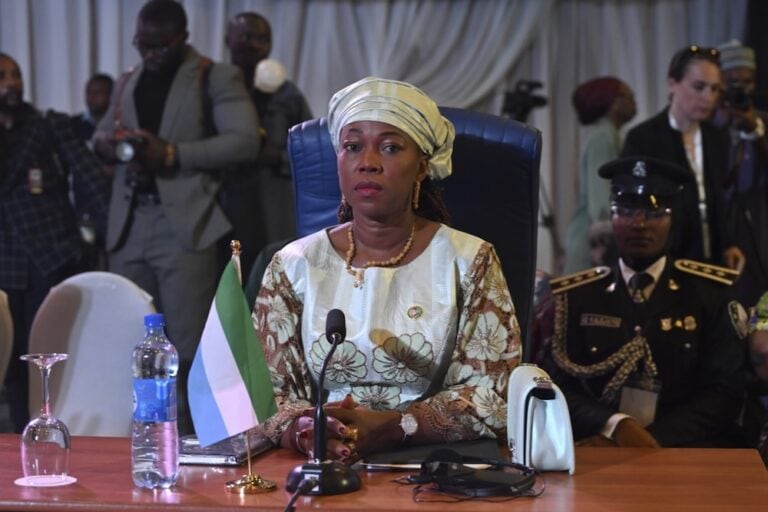(ARTICLE 19/IFEX) – The following is an ARTICLE 19 submission on the government of Sierra Leone’s information and communication policy: SUBMISSION BY ARTICLE 19 TO THE GOVERNMENT OF SIERRA LEONE ON THE INFORMATION AND COMMUNICATION POLICY FOR SIERRA LEONE (JULY 1999) ARTICLE 19 is grateful to the Minister of Information for making a copy of […]
(ARTICLE 19/IFEX) – The following is an ARTICLE 19 submission on the
government of Sierra Leone’s information and communication policy:
SUBMISSION BY ARTICLE 19 TO THE GOVERNMENT OF SIERRA LEONE ON THE
INFORMATION AND COMMUNICATION POLICY FOR SIERRA LEONE (JULY 1999)
ARTICLE 19 is grateful to the Minister of Information for making a copy of
the above policy available to ARTICLE 19. Such a policy is undoubtedly
needed for Sierra Leone and there is much in it that is very welcome.
However, we wish to make a few brief remarks regarding three issues which
cause us some concern. We would be grateful to receive your responses to our
comments.
While it is entirely appropriate to highlight the importance of addressing
people’s lack of access to radio, newspapers, telephones and sources of
information and communication, the Introduction to the policy appears to us
seriously to underplay the importance of another crucial principle:
pluralism. Once people have access, the question becomes one of what is
there to listen to? Pluralism as a term is not used until point 7 of the
policy. In addition, the Introduction surely overstates its point when it
appears to state that it is solely with regard to access issues that the
media should be “democratized”. There can be no genuine democratization of
the media without access to a diversity of views and sources of information.
While there are points where promotion of freedom of expression, including
media pluralism, is part of the policy, its absence from the Introduction
(which we understand to set out the conceptual framework on which the policy
is based) is regrettable.
We are concerned by the fact that there is no consideration of the need for
genuine public service broadcasting in the policy. While the policy rightly
declares that privatisation of the media is not a panacea, it appears
excessively sanguine about the virtues of government-controlled media and
does not even note the possibility that public broadcasting might be made
statutorily independent, with a mandate to serve the people first. The need
for genuine public service broadcasting has been acknowledged by you in
meetings we have had over the past 18 months. This is reassuring. But it
makes it all the more strange that it is not mentioned explicitly in the
policy. Finally, one argument in favour of genuine public service
broadcasting which is often overlooked, but which addresses the concerns
expressed in the policy about northern domination over the world information
order, is that it can be by far the most effective means encouraging local
expression. Whereas government-controlled media are subject to official
interference and monopoly and private media are beholden to the need to make
profits for shareholders, statutorily independent public service
broadcasting can make its primary mission the promotion of local voices and
their diverse forms of expression.
You stated when giving us a copy of the policy that it was based upon an
extensive consultation process. Therefore, we were surprised to note that
none of the media practitioners to whom we spoke during the visit of our
representative to Sierra Leone in October could recall being invited to such
consultations and that most were unaware that the policy now existed. We
would be grateful to receive further information about the consultation
process which took place.


